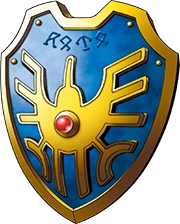I have a lot of feelings about FFVIIR, some of which are even conflicting. It took me some time to really come to grips with the game and what it did. It took me a while to even settle on a framework in which to appraise it.
As part of that process, I went looking for interesting opinions around the net. Unfortunately, I only found a few insightful perspectives. I regard the game very positively overall (although I admit I am fearful of what context part 2 will provide...more on that some other time) and so I was hoping to find some strong negative opinions to consider. While I think some of the criticisms leveled at the game are meaningful, these are almost all issues that don't critically damage the heart of the game...I'm talking about the sort of technical complaints that even the best games can have and are often easy targets for improvement in sequels. As for truly substantial criticisms, I haven't found anything moving yet.
Here are some of the negative sentiments I've run into so far and some thoughts:
1) It's Kingdom Hearts now.
I think this is mostly a rhetorical criticism, but insofar as it is meant to be meaningful, I don't know what it's getting at. The combat is fundamentally different. Fighting a massive end boss is hardly unique to Kingdom Hearts.
I'll grant that the ending makes it tempting to assume the sequel could share more in common with Kingdom Hearts than Final Fantasy fans would like, though. We'll have to wait and see on that. As for part 1, though? No, it's not like Kingdom Hearts.
2) FFVII doesnt need a remake / Shouldn't be remade
I can agree with forms of this complaint. FFVII definitely doesn't need a remake. Does anything? As for should it be remade...I guess that's completely dependent on the outcome.
Just about everyone agrees that Resident Evil(2002) was worth being made, even if someone might prefer the original. It's the go-to example for a "good remake." Then there are remakes like The Thing(1982) which are very different from their progenitor, but are still very good. So, it seems clear remaking something can be worthwhile.
Telling and retelling stories (with variable degrees of change) seems to be a natural human impulse, something we've been doing since as far back as we can see into history. It is as a persitent a part of the human condition as it is to produce art at all. Imitation and creativity go hand in hand for humanity. Because of these things, it would be unreasonable to take a hard stance against any and all "remake" projects.
And yet, I would rather not see any remake that produces somthing worse than it's inspiration! Especially if it amounts to something terrible masquerading as something else I really care about.
But all these thoughts aside, this isn't as much a critique of the game in question as it is about how art and authors should be treated.
3) The ending is confusing
On the contrary, the ending is pretty explicit and easy to understand. It leaves us in suspense, holding onto some unanswered questions as we wait for part 2, but that isn't the same thing.
Some things are unanswered.
Some things are implied.
Some things are completely clear.
However (and it's a big however,) I think this criticism is legitimate if you haven't played the original FFVII. Remake's story is strictly designed for people who have played the original at minimum and so I imagine the significance of certain characters or events might be strange without that context.
FFVIIR is absolutely, 100%, not for you if you haven't played the original and are not at least a little familiar with the events of the various Compilation of FFVII titles. I'm sure you can enjoy it on some level, like jumping into the middle of a years long tv series or comic book, but the story is not catered to a newcomer even a little bit.
As stated before, I've seen other criticisms, but they are either trivial, technical, or otherwise utterly subjective.
If you love FFVII and haven't played the remake, I think you owe it to yourself go take the ride. At the bare minimum I think it may leave you with different feelings than you expect a remake would.



















